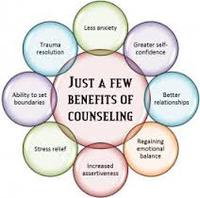Articles » New Beginnings

In these articles we will be discussing what counselling is and is not.
What is Addiction?
According to Medical News Today:
Addiction: Causes, Symptoms and Treatments
People with an addiction do not have control over what they are doing, taking or using. Their addiction may reach a point at which it is harmful.
Addictions do not only include physical things we consume, such as drugs or alcohol, but may include virtually anything, such abstract things as gambling to seemingly harmless products, such as chocolate - in other words, addiction may refer to a substance dependence (e.g. drug addiction) or behavioral addiction (e.g. gambling addiction).
This article focuses mainly on addiction to physical substances.
In the past, addiction used to refer just to psychoactive substances that cross the blood-brain barrier, temporarily altering the chemical balance of the brain; this would include alcohol, tobacco and some drugs. A considerable number of psychologists, other health care professionals and lay people now insist that psychological dependency, as may be the case with gambling, sex, internet, work, exercise, etc. should also be counted as addictions, because they can also lead to feelings of guilt, shame, hopelessness, despair, failure, rejection, anxiety and/or humiliation.
When a person is addicted to something they cannot control how they use it, and become dependent on it to cope with daily life.
A habit may eventually develop into an addiction
Many of us can use substances or become engaged in activities without any significant problems. Some people, however, may experience damaging psychological and/or physical effects when their habit becomes an addiction.
Addictions and habits
With a habit you are in control of your choices, with an addiction you are not in control of your choices.
- Addiction - there is a psychological/physical component; the person is unable to control the aspects of the addiction without help because of the mental or physical conditions involved.
- Habit - it is done by choice. The person with the habit can choose to stop, and will subsequently stop successfully if they want to. The psychological/physical component is not an issue as it is with an addiction.
Addiction to substances or activities can sometimes lead to serious problems at home, work, school and socially.
The causes of addiction vary considerably, and are not often fully understood. They are generally caused by a combination of physical, mental, circumstantial and emotional factors.
Addiction, often referred to as dependency often leads to tolerance - the addicted person needs larger and more regular amounts of whatever they are addicted to in order to receive the same effect. Often, the initial reward is no longer felt, and the addiction continues because withdrawal is so unpleasant.
According to MediLexicon's Medical Dictionary:
Addiction is Habitual psychological or physiologic dependence on a substance or practice that is beyond voluntary control.
Withdrawal has many meanings, one of which is A psychological and/or physical syndrome caused by the abrupt cessation of the use of a drug in an habituated person.
According to the current Diagnostic and Statistical Manual of Mental Disorders (DSM-IV), published by the American Psychiatric Association:
Substance dependence is When an individual persists in use of alcohol or other drugs despite problems related to use of the substance, substance dependence may be diagnosed. Compulsive and repetitive use may result in tolerance to the effect of the drug and withdrawal symptoms when use is reduced or stopped. This, along with Substance Abuse are considered Substance Use Disorders..
Next week we will look at signs and symptoms of addiction.

